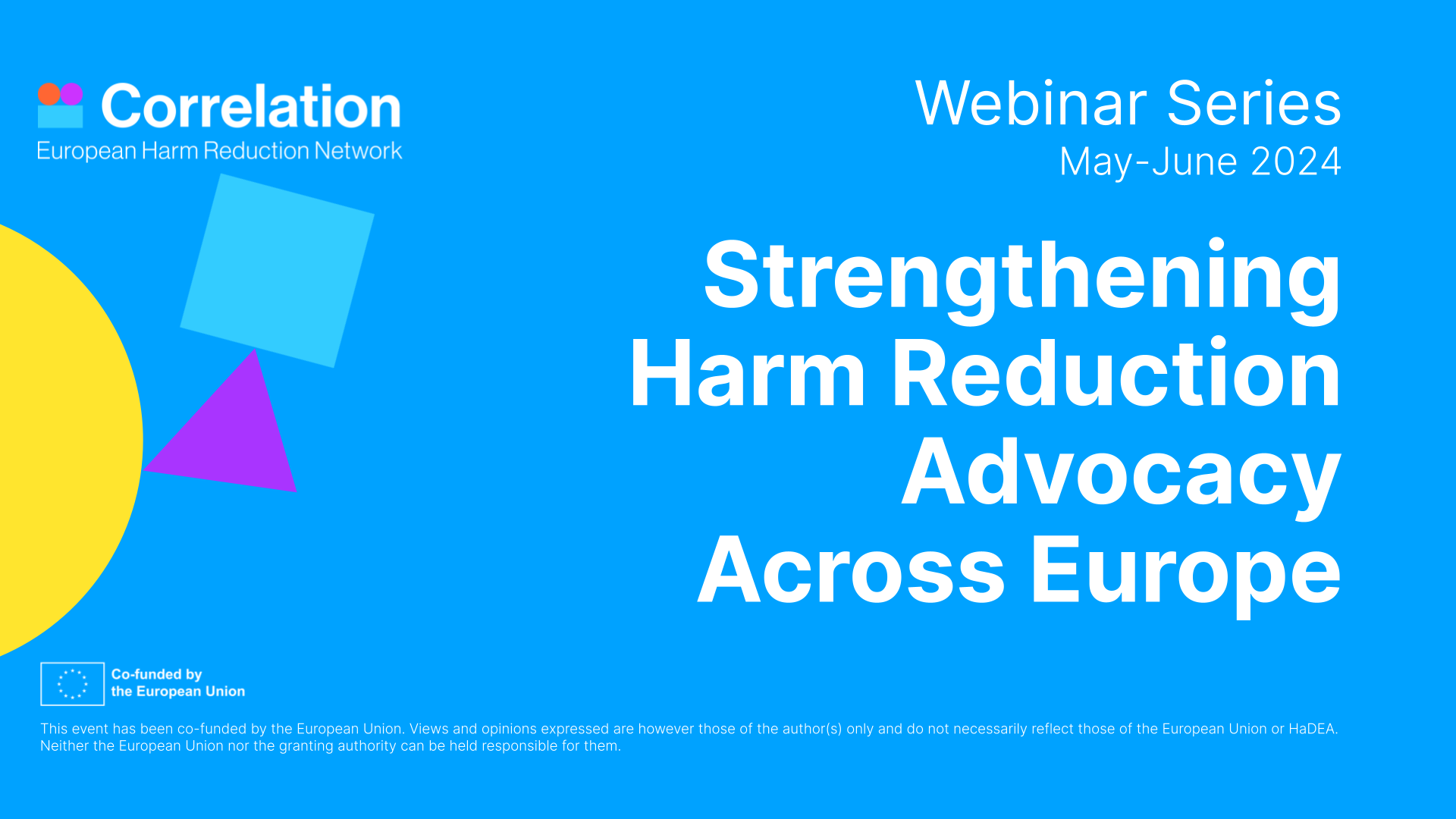
As the days passed by and we finally accepted the ugly truth of needing to postpone the 5th European Harm Reduction Conference to 2021, replacing it with online harm reduction sessions gave our minds fresh blood. On 5 November, we kicked off the sessions.
Were you there? It was a blast!
The day-long major session was divided into four sub-sessions, focusing on highly actual and exciting topics with a worldwide list of game-changer speakers, all specialised in their fields. The first session was on “COVID-19 and its impact on harm reduction in Europe”. Some of its highlights, just to tease your curiosity, were:
Nicole Simone, from WHO Europe, giving an update on the status of the COVID vaccine and how WHO is working with COVAX global alliance (led by WHO, GAVI and CEPI) to facilitate the equitable access and distribution of vaccines to protect people in all countries.
Alexis Goosdeel, from EMCDDA, giving an update on the negative impacts of COVID-19 on continuity of care and accessibility, and its positive effects on innovation, digital innovation, flexibility and renewed relationship with the clients.
Mat Southwell, from EuroNPUD, mentioning how the widely-expected good behaviour and absence of diversion has challenged fundamental assumptions in drug services.
Prof Jeffrey Lazarus, from ISGlobal on behalf of “Nobody Left Outside”, highlighting how closures of services took governments by surprise, and the major role of NGO’s being to engage with local, regional and national governments to ensure harm reduction services can stay open.
Dr Mojca Maticic, from the University of Ljubliana, pointing out how caring for patients with the liver disease during the pandemic should involve greater personalisation and flexibility; and how treatment for HCV and HBV should continue according to guidelines.
Ricardo Baptisa, from UNIT, noting that the COVID-19 crisis is an opportunity to put drug policy and harm reduction on the agenda and to ensure science is driving policy.
The second sub-session focused on the launch of the Special Edition of the Harm Reduction Journal, aiming to examine new dimensions in harm reduction in 2020, with the hope being to potentially broaden the harm reduction approach beyond drug use to other issues to which harm reduction is a successful approach.
The day continued with the question “different approaches for decriminalisation – what works?”, organised by EHRA. The widely spread background of speakers served perfectly to the aim of the session which was to discuss five different approaches to decriminalisation, applied in 5 countries and their impact on lives of people who use psychoactive substances and society.
And finally, we completed the day with a significant amount of participants tuning in to listen to Professor David Nutt alongside other fascinating experts talking about how the war on drugs has failed and discussing how best to engage with both the decision-makers and the public who hold them to account to promote an ethical rationalisation of drug policy.
Following up to our collaboration, we interviewed one of the session moderators, Adam Holland. Adam is a public health doctor, a drug policy researcher and one-time filmmaker as he puts it. You can read the interview HERE.
All the links to the session recordings we summed up in a newsletter which can be read HERE.
Watch and share them if you please.
Our second Harm Reduction Session took place on 26 November, where we created room for discussions on the challenges and good practice examples for effective take-home naloxone distribution in Europe.
Webinar fulfilled its aim in discussing the current challenges and critical factors, which hinder the effective and broad implementation of THN programmes and the new ways forward, with professionals, researchers and People Who Use Drugs (PWUDs). The exchange provided insights and information on the development of practice and policy recommendations.
The session can be watched HERE.
We are now only a couple of days away from our last harm reduction session of the year, due 16 December, 15:00-16:30 CET, with the focus “Challenges and opportunities to monitor new drug trends by civil society organisations (CSO)”
Will you be joining us?
REGISTER HERE